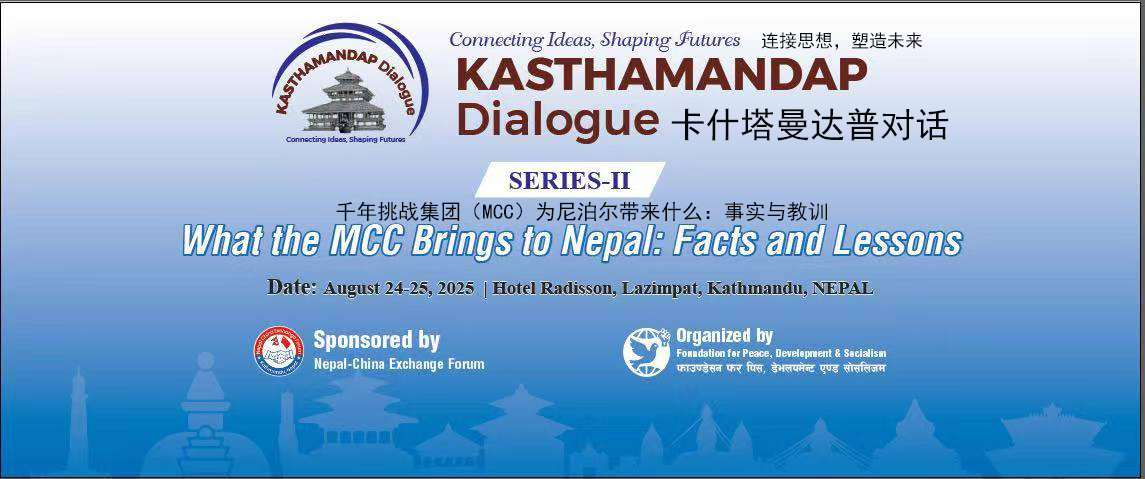
SATV, Kathmandu, 24 August 2025 – The second edition of the Kasthamandap Dialogue Series, themed "What the MCC Brings to Nepal: Facts and Lessons," commenced today in Kathmandu. The two-day national-level forum, organized by the Foundation for Peace, Development and Socialism (FPDS), brings together prominent political leaders, academics, and policy experts to critically examine the Millennium Challenge Corporation (MCC) agreement and its broader geopolitical implications for Nepal.
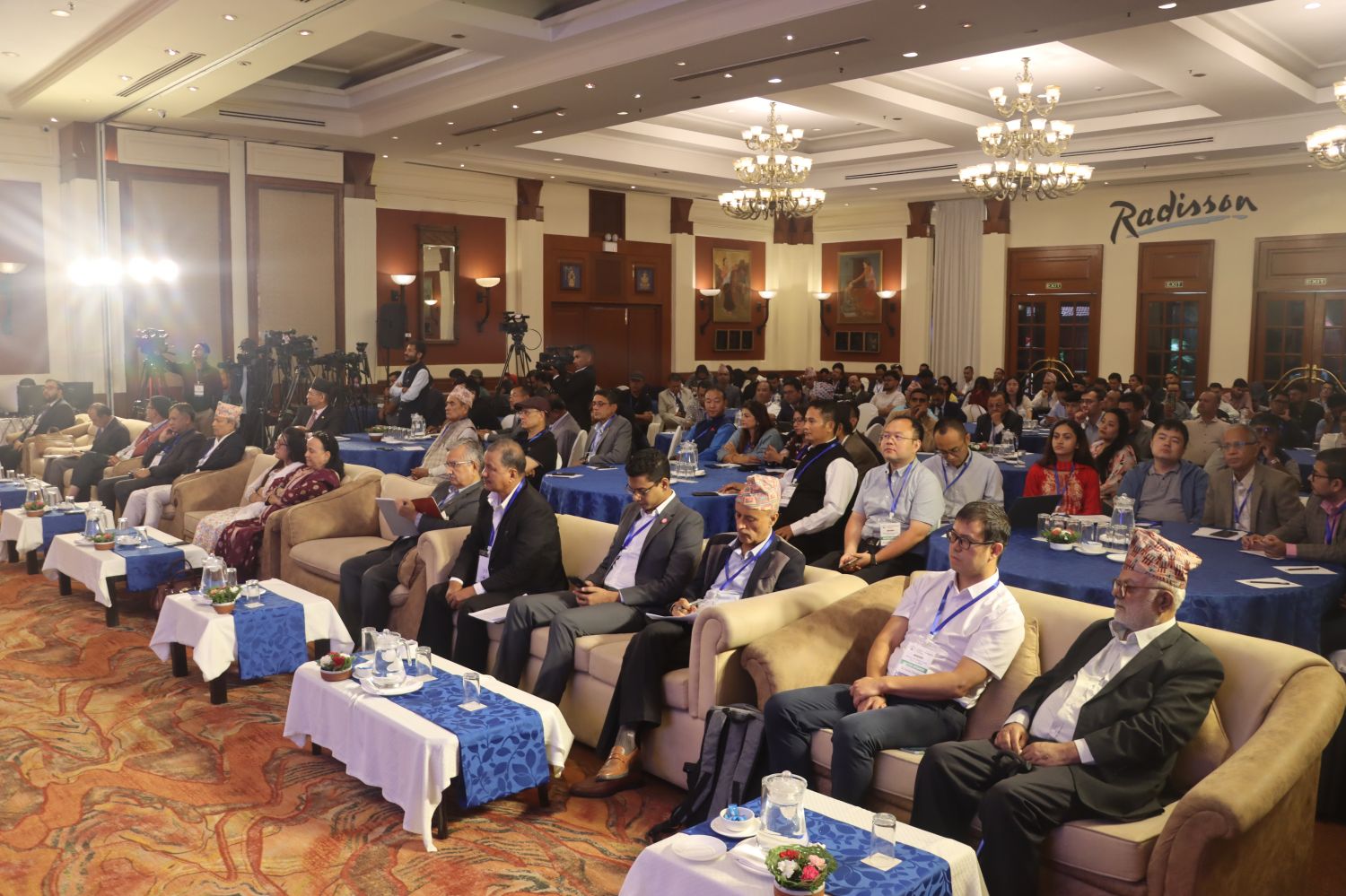
High-level political figures including former Prime Minister Jhala Nath Khanal, former Deputy Prime Minister and Minister of Defense and Home Affairs Bhim Rawal, CPN-UML Vice Chairman Surendra Pandey, and CPN (Maoist) General Secretary Dev Gurung were among the key speakers on the opening day. Scholars and specialists from countries including China, the Philippines, Germany, and Sri Lanka also contributed international perspectives to the discussions.
At the center of the debate lies a crucial question: does the MCC compact serve Nepal’s national interests, or does it pose a threat to its sovereignty amid intensifying global geopolitical competition? The dialogue also explores the MCC’s link to the U.S. Indo-Pacific Strategy, a topic that continues to spark widespread public and political debate in the country.
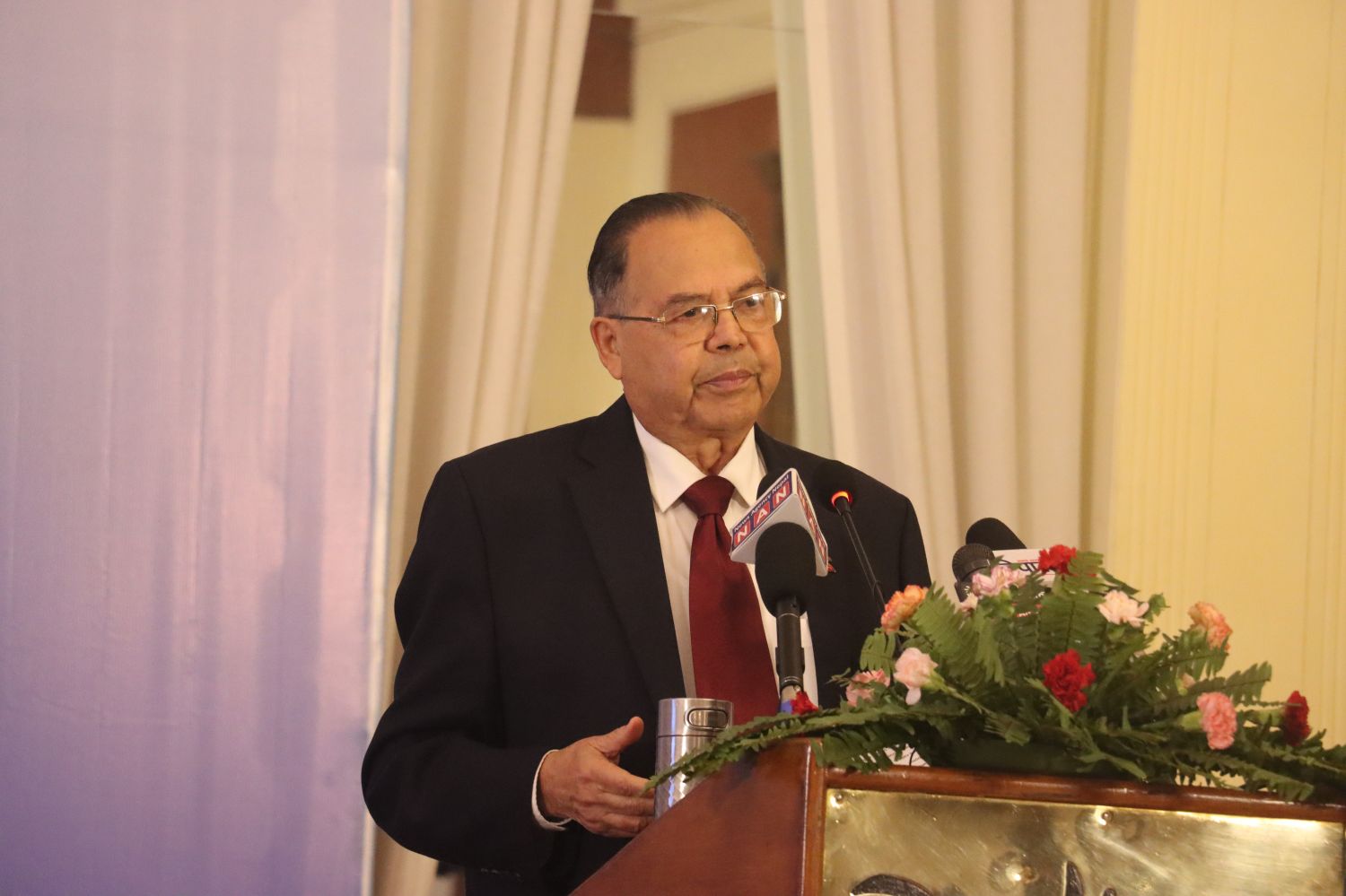
Speaking at the forum, Jhala Nath Khanal expressed deep concerns over rising public dissatisfaction. He highlighted growing protests across Nepal, citing a lack of transparency and accountability in the MCC’s implementation. “The government’s failure to connect with citizens' needs, and the unchecked authority granted to MCA Nepal to hire foreigners, could adversely affect the local economy and trigger conflicts over land ownership,” he warned.
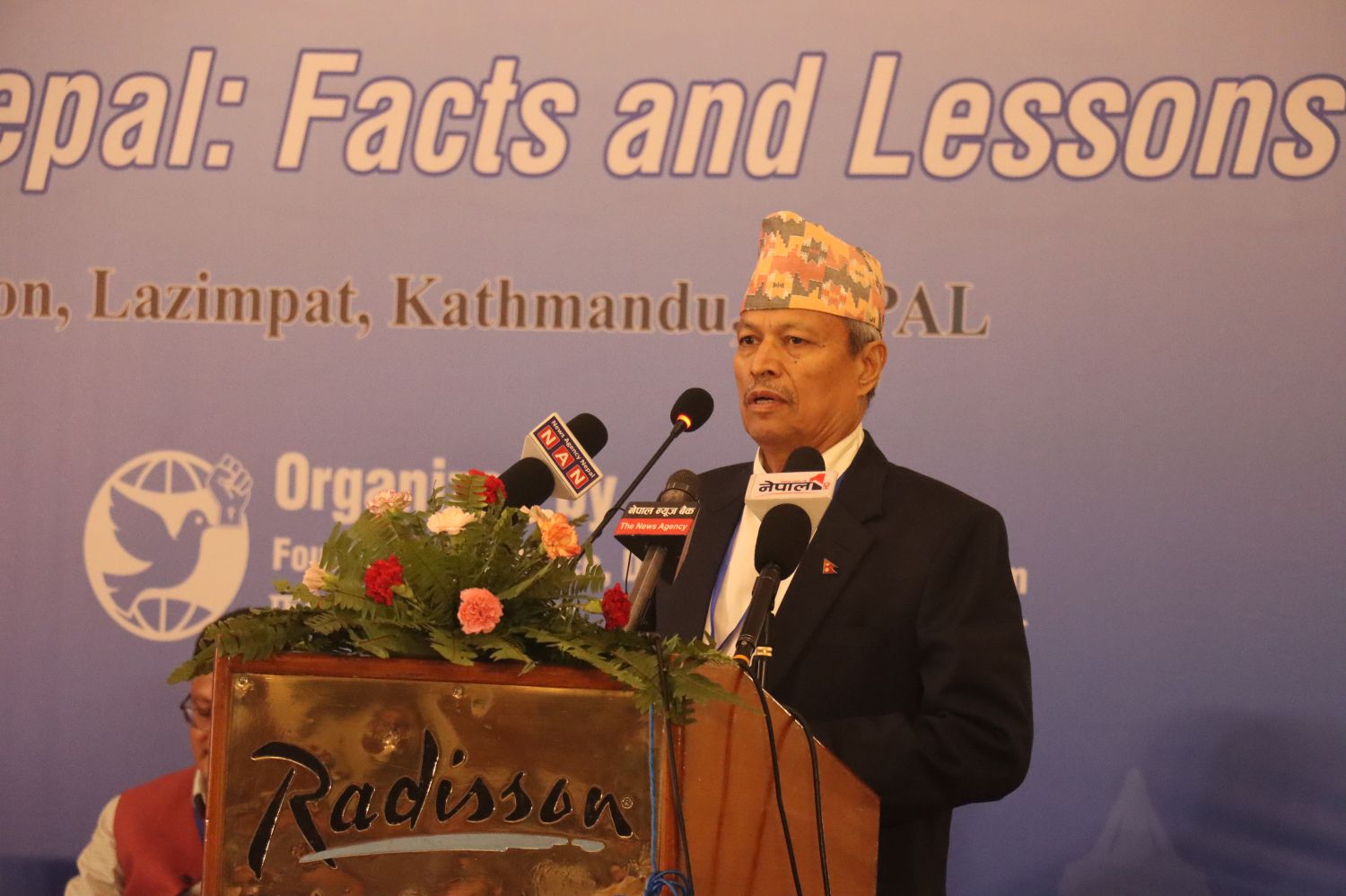
Bhim Rawal echoed these sentiments, questioning the constitutional validity of Nepal’s engagement with the MCC. “While marketed as an infrastructure project, the MCC is deeply embedded in U.S. strategic and security interests,” he stated, arguing that it could compromise Nepal’s sovereignty and long-standing policy of non-alignment.
This series builds on the momentum of the inaugural Kasthamandap Dialogue, held in March 2025 under the theme “The BRI Meets Nepal: A Prosperous Future of Nepal-China Cooperation.” The dialogue continues to position itself as an inclusive and evidence-based platform for addressing critical national and international issues.
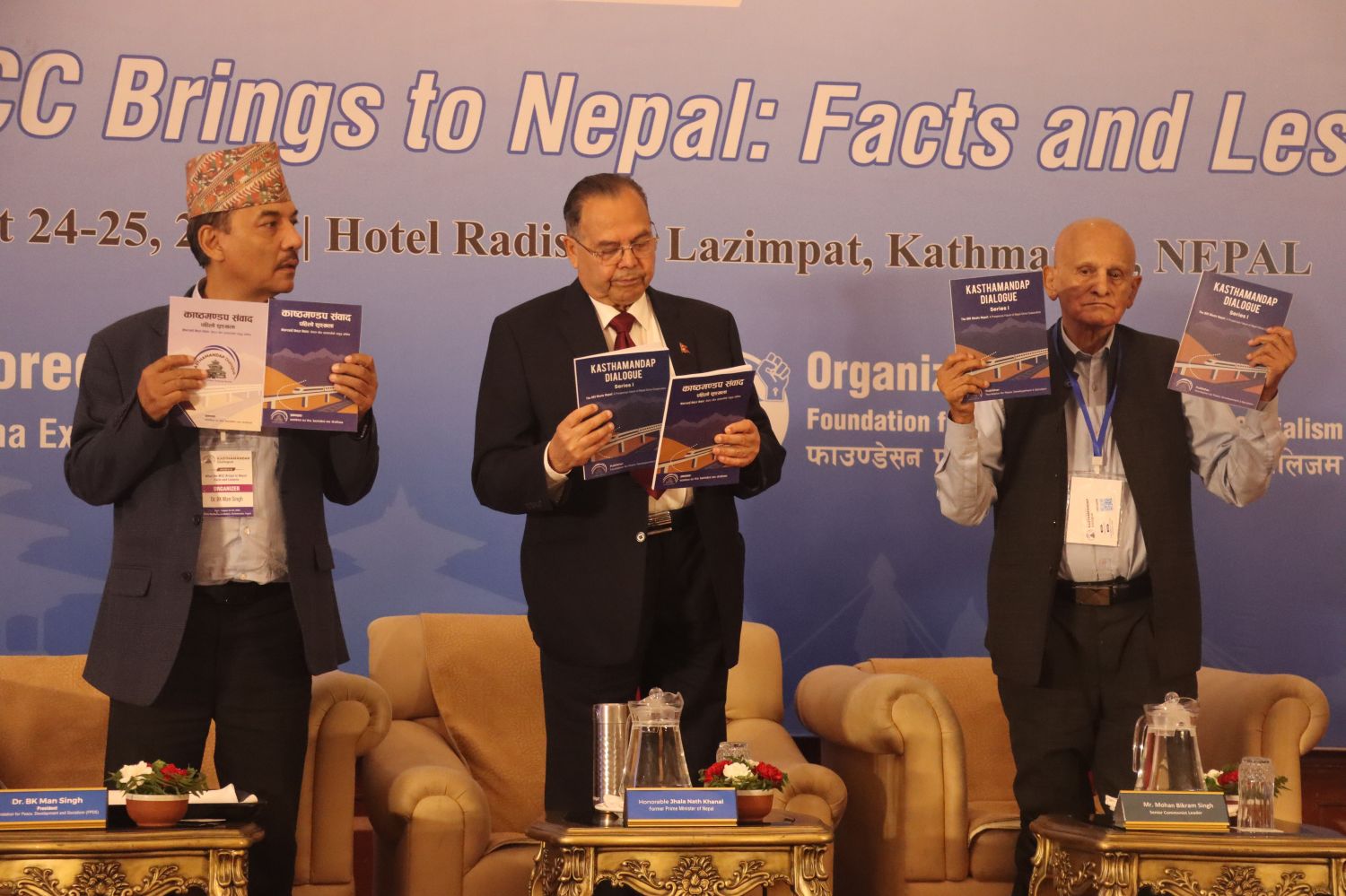
FPDS has confirmed that the outcomes and insights from this second series will be compiled and published, following the successful release of the proceedings from the first edition. Drawing on both national insights and international case studies—such as Sri Lanka’s experience with the MCC—the forum aims to support informed public discourse and policymaking in Nepal.
Guided by its motto “Connecting Ideas, Shaping Future,” the Kasthamandap Dialogue Series reaffirms its commitment to fostering intellectual exchange, civic engagement, and strategic thinking to shape Nepal’s developmental and foreign policy trajectory.
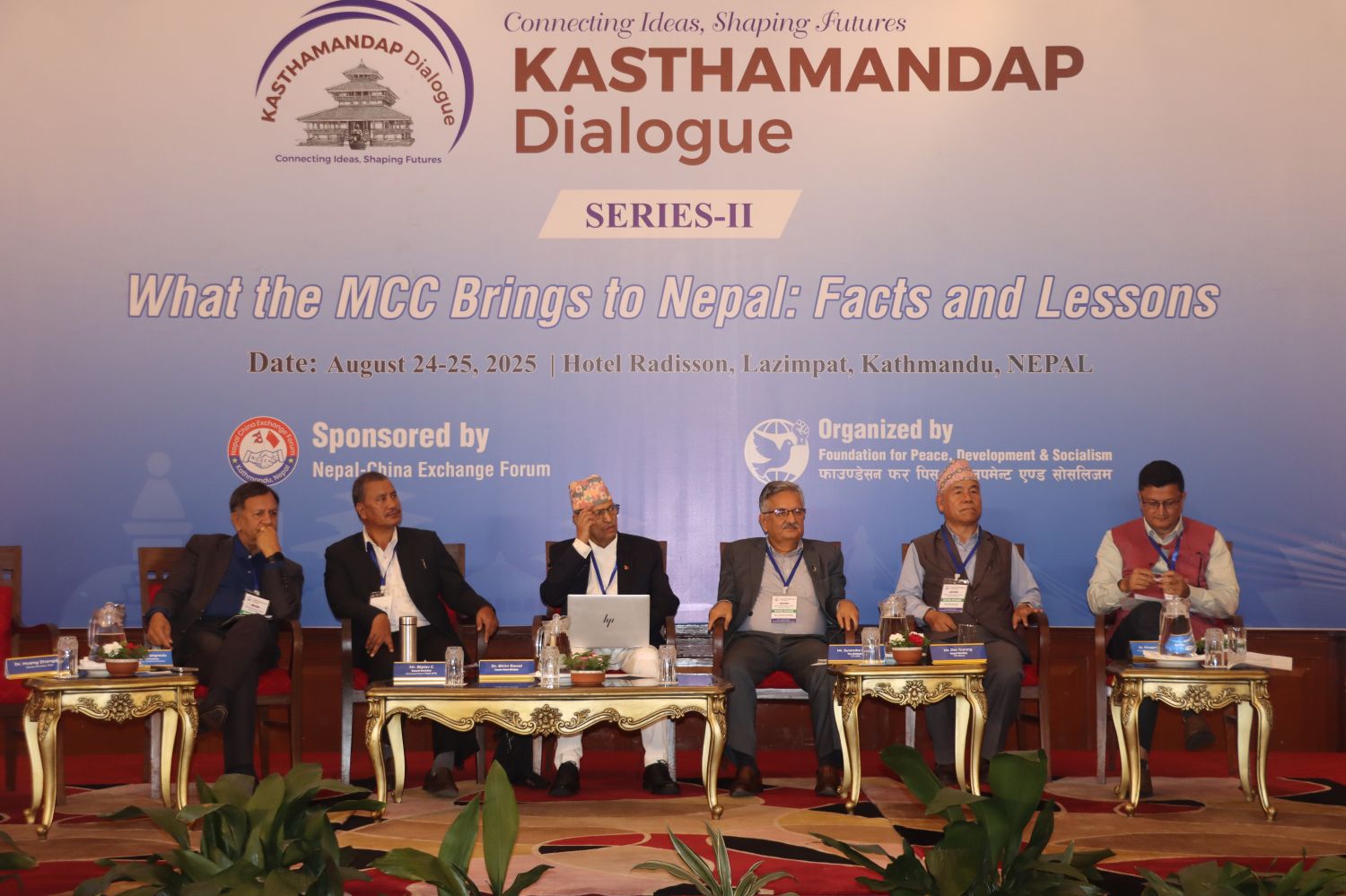
The event will conclude tomorrow, 25 August, with further sessions expected to delve deeper into the MCC’s legal, economic, and strategic ramifications.



















